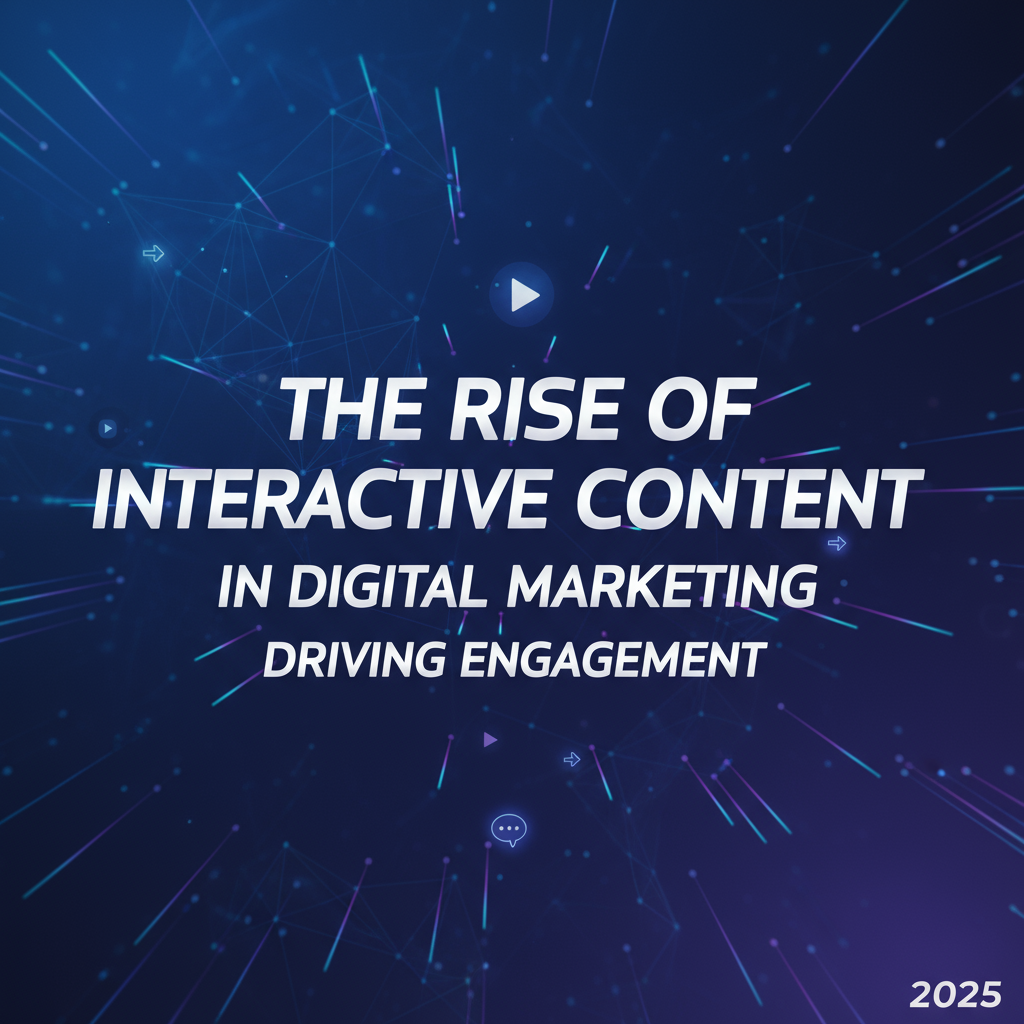Introduction
Digital marketing is no longer just about pushing messages—it’s about creating two-way engagement. In 2025, consumers and B2B buyers expect experiences, not just information. That’s why interactive content—from quizzes and polls to AR experiences and interactive videos—has become one of the most powerful tools in a marketer’s toolkit.
Why does this matter? Because interactive content doesn’t just capture attention, it holds it. Research shows that interactive experiences generate 2x more engagement and 3x more conversions than static content. For digital marketers looking to stand out in crowded markets, interactivity is the future.
In this blog, we’ll explore what interactive content is, why it matters, challenges in adoption, strategies to leverage it effectively, and future trends shaping the space.
What is Interactive Content and Why It Matters
Interactive content is any digital asset that encourages active participation from the audience instead of passive consumption. Unlike static blogs or infographics, it allows users to click, respond, or engage in real time.
Why it matters in digital marketing:
- Higher Engagement: Interactive content drives more clicks, shares, and time spent on page.
- Better Data Collection: Quizzes, calculators, and polls provide first-party data on user preferences.
- Personalized Experiences: Interactive formats help tailor messages and offers to each prospect.
- Improved Conversion Rates: Engaged users are more likely to move through the sales funnel.
📊 According to Demand Gen Report, 93% of marketers say interactive content is more effective in educating buyers than static formats.
Challenges in Using Interactive Content for Digital Marketing
- Resource-Intensive Creation
- High-quality interactive content often requires design, development, and integration resources.
- Measurement Complexity
- Unlike clicks or impressions, measuring ROI from interactive formats can be tricky without advanced analytics.
- Integration with Martech Stack
- Ensuring interactive tools sync with CRM, automation, and analytics platforms is often challenging.
- Audience Fatigue
- Not all interactive content resonates. Overusing gimmicky formats can lead to drop-offs.
Example: A retail brand launched a flashy AR app without aligning it to customer needs, resulting in low adoption.
Proven Strategies to Leverage Interactive Content
1. Use Interactive Quizzes & Assessments
- Great for lead generation—users exchange information for personalized results.
- Example: A SaaS company offering a “What’s Your Martech Readiness Score?” quiz.
2. Deploy Calculators & ROI Tools
- Help prospects self-validate ROI before talking to sales.
- Example: HubSpot’s ROI calculator for inbound marketing campaigns.
3. Create Interactive Videos
- Allow viewers to choose story paths or access clickable CTAs within the video.
- Tools: Wistia, Vidyard, Wirewax.
4. Use Polls and Surveys on Social Media
- LinkedIn, Instagram, and X (Twitter) polls drive instant engagement and insights.
- Best practice: Use them to spark discussions and collect first-party data.
5. Launch AR/VR Experiences
- Perfect for product demos, trade shows, or immersive storytelling.
- Example: IKEA’s AR app letting users place furniture virtually in their homes.
6. Gate Interactive Content for Lead Nurture
- Combine with marketing automation to deliver follow-up resources.
- Example: Personalized eBooks generated after users complete an assessment.
Trends and the Future of Interactive Content in 2025
- AI-Powered Personalization
- Interactive experiences will adjust in real time based on user behavior and preferences.
- Voice-Enabled Interactivity
- With smart speakers and voice assistants, interactive content will expand into voice-driven engagement.
- Gamification in B2B Marketing
- B2B marketers will increasingly use gamified learning modules, contests, and leaderboards to boost engagement.
- First-Party Data Collection
- Interactive tools will become a key source of consent-based data in a privacy-first digital world.
- Integration with ABM & Martech Stacks
- Interactive content will be tied directly into ABM workflows, allowing marketers to deliver role-specific content at different funnel stages.
Pro Tips & Bonus Insights
- Start with lightweight formats (polls, quizzes) before investing in AR/VR.
- Tie interactive content to clear buyer personas and funnel stages.
- Track metrics like completion rates, dwell time, and lead conversions instead of vanity metrics.
- Repurpose—turn an interactive assessment into a personalized report or webinar topic.
Conclusion
Interactive content is no longer optional—it’s becoming the core of digital marketing engagement strategies in 2025. By moving beyond static assets and creating dynamic, personalized experiences, brands can capture attention, build trust, and drive measurable ROI.
For digital marketers, the future is clear: engagement is the new currency, and interactivity is the way to earn it.
